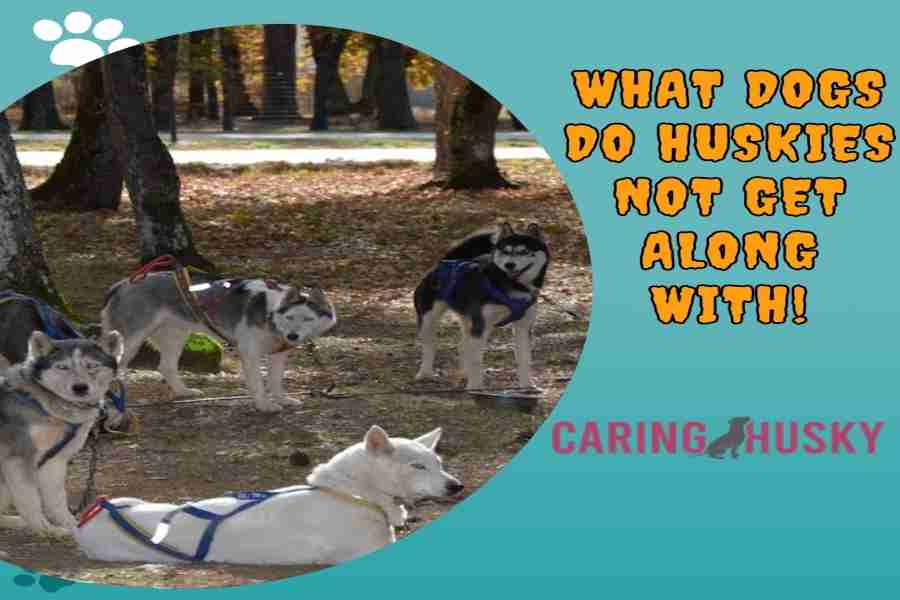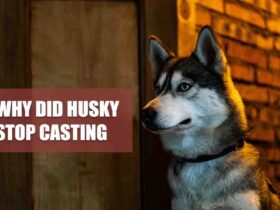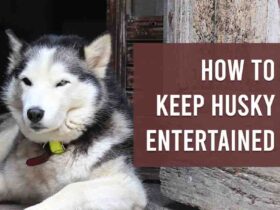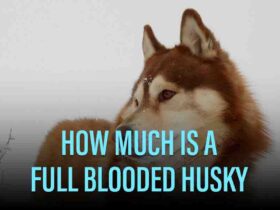Dogs are known for their diverse personalities and compatibility varies from breed to breed. Siberian Huskies, with their striking appearance and adventurous spirit, are beloved by many dog enthusiasts. However, understanding which dog breeds may not harmonize well with huskies is crucial for responsible ownership. Huskies possess distinct traits, including a strong pack instinct and boundless energy, which can influence their compatibility with other dogs. This article delves into the factors affecting husky compatibility, explores breeds that tend to get along, identifies those that may not, offers tips for introductions, and provides insights into recognizing and managing compatibility issues. Discover the key to fostering peaceful coexistence among our canine companions.
What Dogs Do Huskies Not Get Along With?
Siberian Huskies may not get along with dogs of smaller breeds, particularly those with fragile or timid temperaments. Their high energy levels and strong prey drive can lead to chasing behaviors. Additionally, huskies may be less compatible with dominant or aggressive breeds, as conflicts can arise. Early socialization and supervision are essential to ensure positive interactions between huskies and other dogs.
Factors Affecting Husky Compatibility
Several factors influence the compatibility of Siberian Huskies with other dogs:
- Size and Age: Huskies may not get along with significantly smaller or much larger dogs, and age differences can impact play styles and interactions.
- Temperament: The temperament of the other dog is crucial. Huskies generally do well with dogs of similar energy levels and friendly dispositions.
- Socialization: Early socialization plays a vital role in how huskies interact with other dogs. Well-socialized huskies are more likely to be compatible.
- Training: Proper training and obedience can help huskies coexist peacefully with other dogs, reducing potential conflicts.
- Prey Drive: Huskies have a strong prey drive, so compatibility can be challenging with small animals or breeds with small pets. Understanding these factors can enhance the compatibility of huskies with other dogs.
Breeds That Huskies Tend To Get Along With
Siberian Huskies tend to get along well with certain breeds that share similar characteristics and energy levels. Some breeds that are often compatible with Huskies include:
Alaskan Malamute: Both breeds share a northern heritage and are known for their strength and endurance. They often enjoy each other’s company.
- Samoyed: Samoyeds are friendly and social, making them good companions for Huskies. They also have a similar appearance.
- Golden Retriever: Golden Retrievers are friendly, outgoing, and energetic, which aligns with Huskies’ temperament.
- Labrador Retriever: Labs are playful and social dogs that can match the energy of Huskies.
- Bernese Mountain Dog: Bernese Mountain Dogs are gentle giants and can get along well with Huskies due to their calm demeanor.
- Siberian Husky (Same Breed): Huskies often enjoy the company of their own breed, as they share similar traits and play styles. While compatibility can vary among individual dogs, these breeds generally have characteristics that align with those of Siberian Huskies. Proper socialization and supervision are still essential for a harmonious relationship.
Breeds That Huskies May Not Get Along With
Siberian Huskies may not always get along with certain breeds due to differences in temperament, size, or energy levels. Breeds that Huskies may have compatibility issues with include:
- Toy Breeds: Extremely small dogs, such as Chihuahuas or Pomeranians, may be seen as prey by Huskies, potentially leading to conflicts.
- Guardian Breeds: Breeds like the Rottweiler or Doberman Pinscher can be territorial and dominant, which may not align well with Huskies.
- Terriers: Some terrier breeds, such as the Jack Russell Terrier, are high-energy and may clash with Huskies’ strong personalities.
- Dominant Breeds: Dogs with dominant or aggressive tendencies, regardless of breed, can provoke conflicts with Huskies.
- Non-Social Breeds: Certain breeds with independent or aloof personalities may not engage well in social interactions with Huskies. Compatibility depends on individual dog personalities and socialization efforts, but it’s important to be cautious when introducing Huskies to these breeds.
Tips For Introducing Huskies To Other Dogs
Introducing Huskies to other dogs requires careful planning to ensure a positive and safe interaction. Here are some essential tips for a successful introduction:
Choose Neutral Territory: Select a neutral location, such as a park, where neither dog feels territorial. This reduces the likelihood of territorial aggression.
Keep Dogs on Leashes: Initially, keep both dogs on leashes to maintain control. Allow them to approach each other gradually, keeping the leashes loose.
Observe Body Language: Pay close attention to both dogs’ body language. Look for signs of stress, fear, or aggression, such as raised hackles, growling, or rigid posture.
Positive Reinforcement: Reward both dogs with treats and praise for calm and friendly behavior. This reinforces positive interactions.
Slow Introduction: Allow the dogs to approach each other at their own pace. Avoid forcing them together, as this can lead to tension.
Supervision: Always closely supervise interactions, especially during the initial meetings. Be prepared to intervene if any signs of aggression occur.
Short, Positive Encounters: Keep the first few meetings short and positive. Gradually extend the duration as both dogs become more comfortable with each other.
Separation if Necessary: If tensions arise, separate the dogs and try again later. It may take multiple meetings for them to get along.
Consistent Training: Ensure both dogs are well-trained in basic commands like “sit,” “stay,” and “leave it.” This allows you to control their behavior during introductions.
Consult a Professional: If you’re unsure about the introduction or if there have been previous aggressive incidents, consider seeking the help of a professional dog trainer or behaviorist.
Conclusion
In the world of canine companionship, understanding the factors that influence Siberian Huskies’ compatibility with other dogs is paramount. While these striking and spirited dogs can form strong bonds with various breeds, their unique characteristics, including a strong pack instinct and boundless energy, mean that compatibility can be a nuanced endeavor. By recognizing the importance of size, temperament, and early socialization, dog owners can increase the likelihood of harmonious coexistence. Vigilant supervision, positive reinforcement, and professional guidance when needed are vital tools for ensuring that Huskies can enjoy the company of their fellow canines, fostering a happier and safer environment for all.
FAQ’s
Do Huskies Get Along With Small Dog Breeds?
Not always. Huskies may view very small dogs as prey, so compatibility can be challenging.
Are Huskies Good With Other Huskies?
Generally, yes. Huskies often enjoy the company of their own breed due to similar traits.
Can Huskies Get Along With Dominant Breeds?
It can be challenging. Huskies may have conflicts with dominant or aggressive breeds.
Do Huskies Require Special Socialization With Other Dogs?
Yes, early socialization is crucial to help Huskies develop positive interactions with other dogs.
What Signs Indicate Compatibility Issues Between Huskies And Other Dogs?
Signs include growling, raised hackles, and aggressive body language. These should be addressed promptly.







Leave a Reply